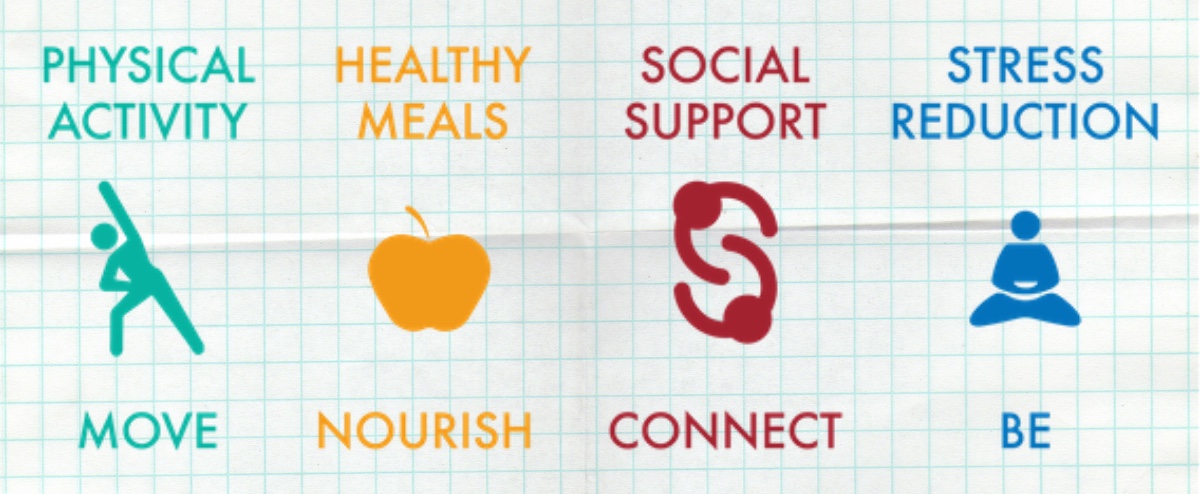- Follow the COVID-19 guidelines – SELF-ISOLATE is essential. Wash your hands and practice good hygiene. And then:
- Breathe – Breathe in slowly and deeply for the count of 5, hold for a second, and breathe out for the count of 5. Do this 6 times, and this is 1 minute. You can trigger your vagus nerve and rest and restore mode with just these few deep breaths. Do it often during the day, and it can help break the cycle of anxiety and stressful thoughts.
- Eat real food – Your immune system starts in your gut with your microbiome and immune cells, and it can be strengthened or weakened by what you eat. Avoid simple sugars, fried foods, trans fats, and hyper-processed (refined) foods that are low in nutrients and cause inflammation. Eat instead foods that feed the microbiome and support the immune system, such as fiber-rich legumes, whole grains, vegetables (frozen is great, canned will work), frozen fruit, vegetables/fruits with color, and fermented and pickled foods. Be sure to include immune-supporting foods, such as garlic, onions, mushrooms, citrus foods, cruciferous vegetables (kale, cabbage, broccoli family), and berries. And don’t forget your vitamin C-rich foods, such as broccoli, green leafy vegetables, bell peppers, citrus fruits, kiwi, cherries, and strawberries. Just do the best you can with what you have. – oatmeal and cinnamon will also work!
- Get sleep – your immune system heals and repairs itself when you sleep, so this is essential. It also decreases cortisol levels. The goal is 7-9 hours of restorative sleep. If you don’t get this, napping for 20-30 minutes can also be beneficial. Be sure to have a sleep routine to help your mind and body relax and unwind at the end of the day. Avoid screens for at least an hour before bed. That means no news and no big conversations. Do some deep breathing, read an enjoyable book, write in a journal, listen to music, use some essential oils. Turn down the lights at night to prepare your body for sleep.
- Move your body – Even in social isolation. Exercise circulates waste and toxins and helps clear infections while strengthening the immune system. Exercise can also help reduce depression and lower stress hormones as effectively as antidepressants for mild-moderate symptoms. Get out for a walk and let your body move. Work up a sweat if you can. Find some u-tube yoga and do it from home. Stretch, work on your balance and flexibility, use some bands or weights if you have them. Your own weight will also work – can try core work, pushups (modified to your ability level), squats and lunges. Do what you can, but make sure you move.
- Get outdoors (if you can while self-isolating) – Breathe that fresh, beautiful air. Bonus points if you get in nature. Look at the sky. Be mindful of the breeze, the fresh air, the sounds, and smells. Feel your stress dissipate. Remember gratitude and appreciation.


KEEP writing! 🙂
Thanks, Kim!😊